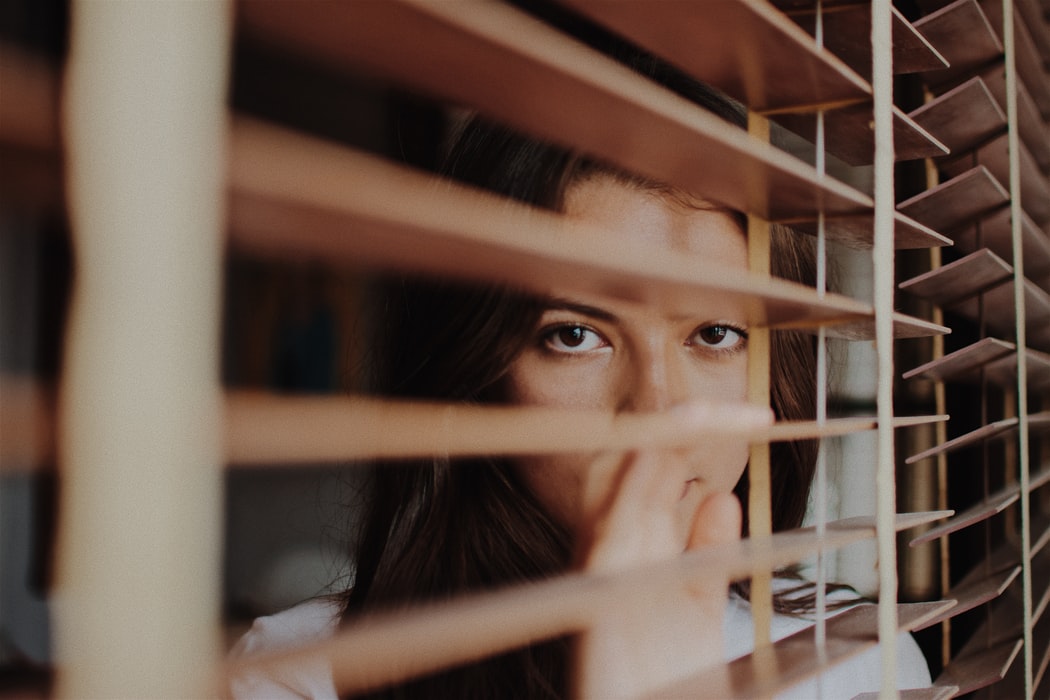
Why does the eye keep twitching?
If you’re experiencing eye twitching then your eyes might be telling you something. An eye twitch is an involuntary, unusual blinking of the eyelid. It’s also called myokymia, resulting in abnormal blinking of the eyes many times per day. If it occurs with you and induces pain, then we recommend you get an eye test immediately and consult your optometrist.
Eye twitching can at times be unproblematic but it happens frequently, it can grow into severe affecting your vision. One of the facial muscles is responsible for closing our eyelids while the other helps to raise your eyelid. Eye twitching occurs when one or both of these muscles are in trouble. Either of them is evenly responsible for causing eye twitching.
But not all eye twitching is a cause of concern, some are temporary and harmless. You can develop occasional eye twitching even while you are exhausted, overworked or taken an excessive amount of caffeine. But it grows frequently, then it is a significant cause of concern. Eye-twitching is mostly common among middle-aged and elderly women.
What is a twitching eye a sign of?
Like we’ve mentioned before, rare eye twitching is quite common to experience and it fades away on its own. While frequent eye twitching can cause a condition called benign essential blepharospasm.
There isn’t enough information on what actually causes benign essential blepharospasm. It causes severe pain and complication to the muscle group around the eye. Frequent eye twitching is suspected to be a result of basal ganglia ( a part of the brain) or certain genes.
Other brains and nervous systems that might cause eye twitching are the following. Eye-twitching can be one of the few symptoms of these diseases along with other major ones –
- Parkinson Diseases
- Bell Palsy
- Multiple Sclerosis
- Side effect from mental health-related medications
- Meige Syndrome – A nervous system movement disorder
- Brain damage caused by inflammation or a stroke. Mostly in the case of the thalamus, basal ganglia or brain stem.
In rare cases, eye twitching is also the result of an underlying health condition. Bright lights, extensive stress, fatigue, too much caffeine intake or eye irritation can make eye twitching worse. Steer clear from these risk factors if you are undergoing permanent or temporary eye-twitching.
If you’ve undergone head injuries in the past, it can also increase the risk of eye-twitching. And hereditary also plays a role, if any of your family members have had eye-twitching then its most likely to run in the family.
Symptoms of Eye-twitching
Symptoms of eye-twitching can vary from person to person based on how frequently and at what speed the eyes are blinking. Some few experience eye twitching for a very few seconds while others experience it even less than 10 seconds.
Eye-twitching can also last for days or longer and disappear after a while. For some, eye-twitching occurs more frequently and lasts longer than normal. It’s never the same so mapping out what kind and type of eye-twitching one can experience is tricky.
In most people, only the top lid twitches while for some, both of the eye twitches. Sometimes only one eye shows symptoms even after both of the eyes-twitching.
Apart from eyelid twitching, you might experience the following symptoms –
- Eye irritation
- Light sensitivity
- More blinking than usual
- Dry-eyes
- Vision change
- Facial spasms
Some symptoms of eye-twitching might disappear when you are sleeping or focused on performing any task. You can do other activities to make eye-twitching go away like singing, talking, or exercising.
Diagnosis of eye-twitching
If you experience any changes in your eye, including usual blinking, a comprehensive eye test can be of great help. An eye test would require 10 to 20 minutes of your time and rule out the causes of your eye problem. The optometrist will help to find the solution to permanent or temporary eye problems.
Book your appointment for a free eye test at Specscart today. That’s right, Specscart, the Manchester-based startup offers free eye tests for everyone. Performed under qualified optometrists, you can visit their stores in Walkden and Bury at any hour and day to maintain your eye health.
How to treat eye-twitching?
You don’t need to seek any treatment for eye twitching if there aren’t any symptoms seen on you. It can be irritating and at times, painful to bear so try to take some rest and reduce the intake of caffeine to reduce the symptoms.
You can also take Botulinum toxin injection to ease the pain from eye twitching. But only under the guidance of your healthcare provider as the medication paralyzes the muscle that’s contracting.
If your condition turns quite severe, then you must opt for a surgical procedure to treat eye-twitching. Myectomy, the surgery for eye-twitching works to remove certain muscles and nerves from the eyelids to cease the symptoms.
What is the complication of eye-twitching?
Chronic or severe eye-twitching can permanently damage your eyelids and other structure of the eyes. Here are some of the biggest complication caused by eye-twitching –
- Abnormal eyelid folding
- Extra skin on the lower and upper eye
- Eyebrows resting lower than usual
- Upper eyelids resting lower
Apart from changes around the eyes, people with eye-twitching also experience muscle spasm in other parts of the body, like their jaw and neck.
How to prevent eye twitching?
By reducing the risk factor that causes eye-twitching, we can significantly help prevent eye-twitching. Here are the following steps to take –
- Lessen your caffeine intake
- Get more sleep
- Use sunglasses when needed
- Reduce eye irritations of all kids/Use eye drops
- Take less stress, try to free your find
Go for an annual eye test to see any changes captured in your eyes. Specscart offers a free eye test for everyone across the eye. You can also piece designer glasses and sunglasses in the most affordable range. All of their glasses/sunglasses come fully loaded with anti-glare, anti-scratch, and anti-UV coating for free. Get your eyes tested today!


